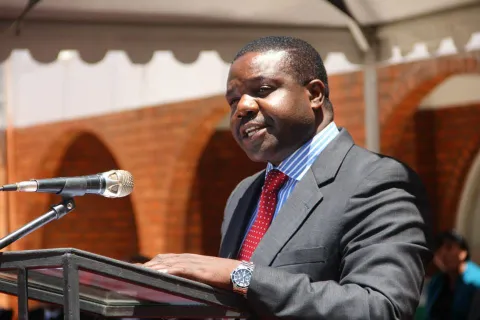
Chibamba Kanyama wrote.....
Speaking on Radio Phoenix ‘Let the People Talk’, PEP President Sean Tembo encouraged the new Government to resist taking on an IMF Programme, emphasizing the benefits of the commercial (Eurobond) Market as a much more flexible source of funding to Government. He said several things that were not realistic such as Zambia’s financial position, saying there was no debt problem.
Just yesterday, President Hakainde Hichilema revealed the level of debt was much higher than communicated. There could be some truth in the statement because Finance Minister Situmbeko Musokotwane hinted on the prospect on ZNBC Sunday Interview. This communication led to panic among bondholders who repriced their assets.
The President was signaling the intention of the government to be much more transparent about the debt position than before as has been demanded by the bondholders five years now. The bondholders always suspected the debt position had all along been under-stated and their behaviour yesterday to react the way they did was expected. It was merely a matter of time. We have just been postponing the obvious by announcing figures that may not have been correct. I expect that when the actual figures are communicated (if they indeed exist), there is likely to be a further impact on bond prices as well as our own exchange rate except the movements will be moderated.
In my virtual presentation to offshore investors yesterday on Zambia’s political transition and policy outlook, a question was asked as to whether the revelation of the new debt would further stall IMF programme discussions or even lead to total call off. My response was that the opposite would likely happen; that the IMF would be much more forthcoming with the transparency that is now coming out of government. The suspected lack of transparency does in part explain why the programme has dragged seven years. With much more openness, the programme discussions for an Extended Credit Facility will be concluded sooner than later.
The point here is that there is always a higher price to pay accessing funding from the international commercial market than borrowing from multilateral creditors like the IMF. Though seemingly efficient and without obvious conditionalities, commercial creditors punish borrowers severely in more ways than one. Since we accessed Eurobonds, Zambia has been exposed to the global world, limiting its capacity to engineer practical actions to grow the local economy. Every statement by local authorities is watched and gets transmitted to the market, including exchange rates. Even my simple tweet on the recall of IMF Resident Representative Alfredo Baldini is said to have cost the country between US$9 and US$27 million.
The impact of Eurobonds to the local economy cannot compare to the effect of the IMF programme on the health of the economy. The latter is more than accessing money for balance of payments support; it unlocks opportunities that lead to long term economic stability, a condition necessary for economic growth and employment. Like Dr. Musokotwane stated, the IMF conditions will even be less tough than the conditions Zambia will set for itself.
Zambia will do well to speedily restructure the commercial debt and pay it off via the IMF programme (that sets the right conditions for either restructuring or refinancing).
We should, therefore, quickly ascertain the true level of the external debt. President Hichilema has also done well to communicate to investors via a tweet that the issue now is not so much about the magnitude of the debt but strategies to dismantle it. That is what matters now to arrest a potentially disastrous situation in terms of bond prices.
Chibamba Kanyama









